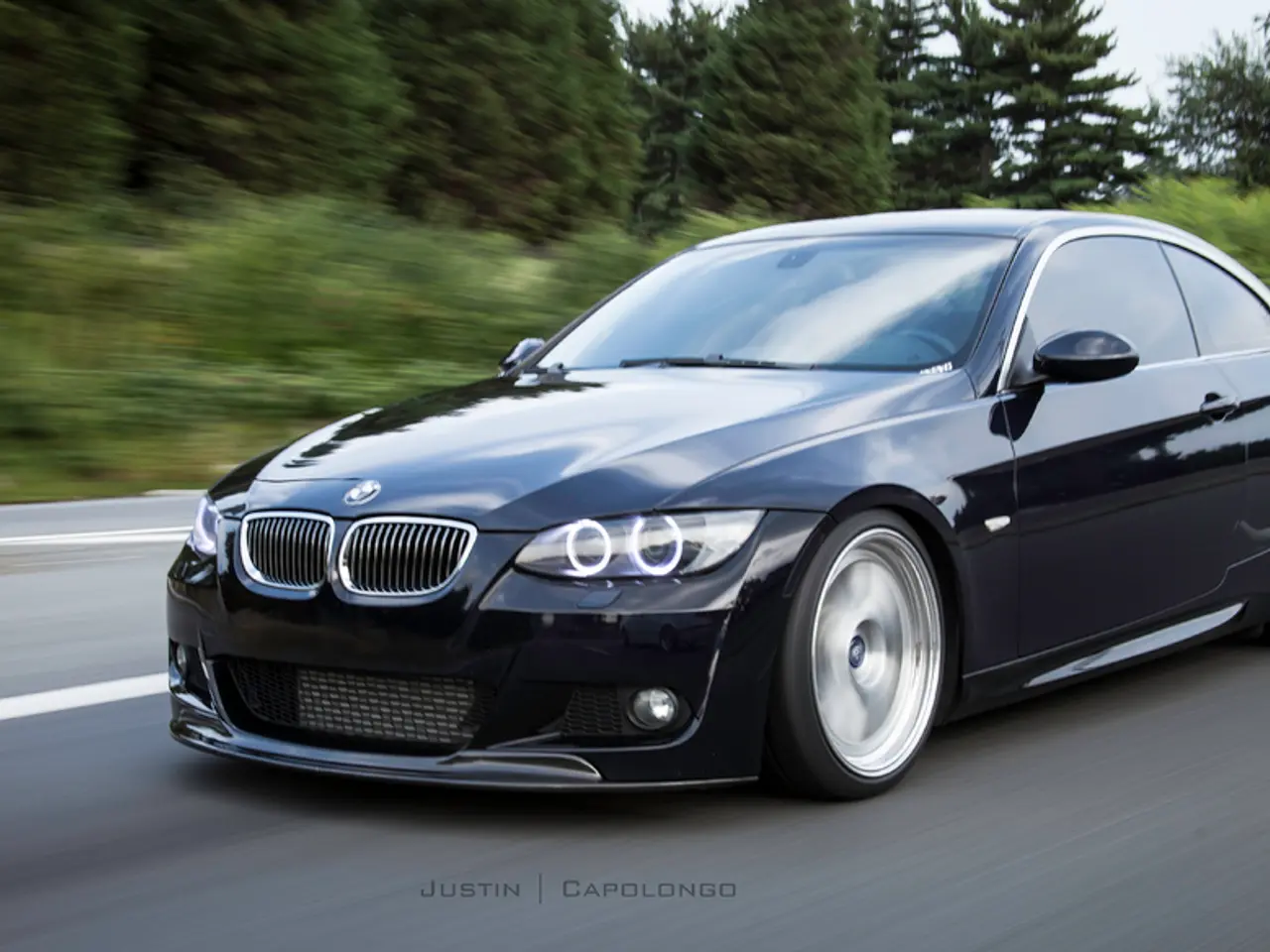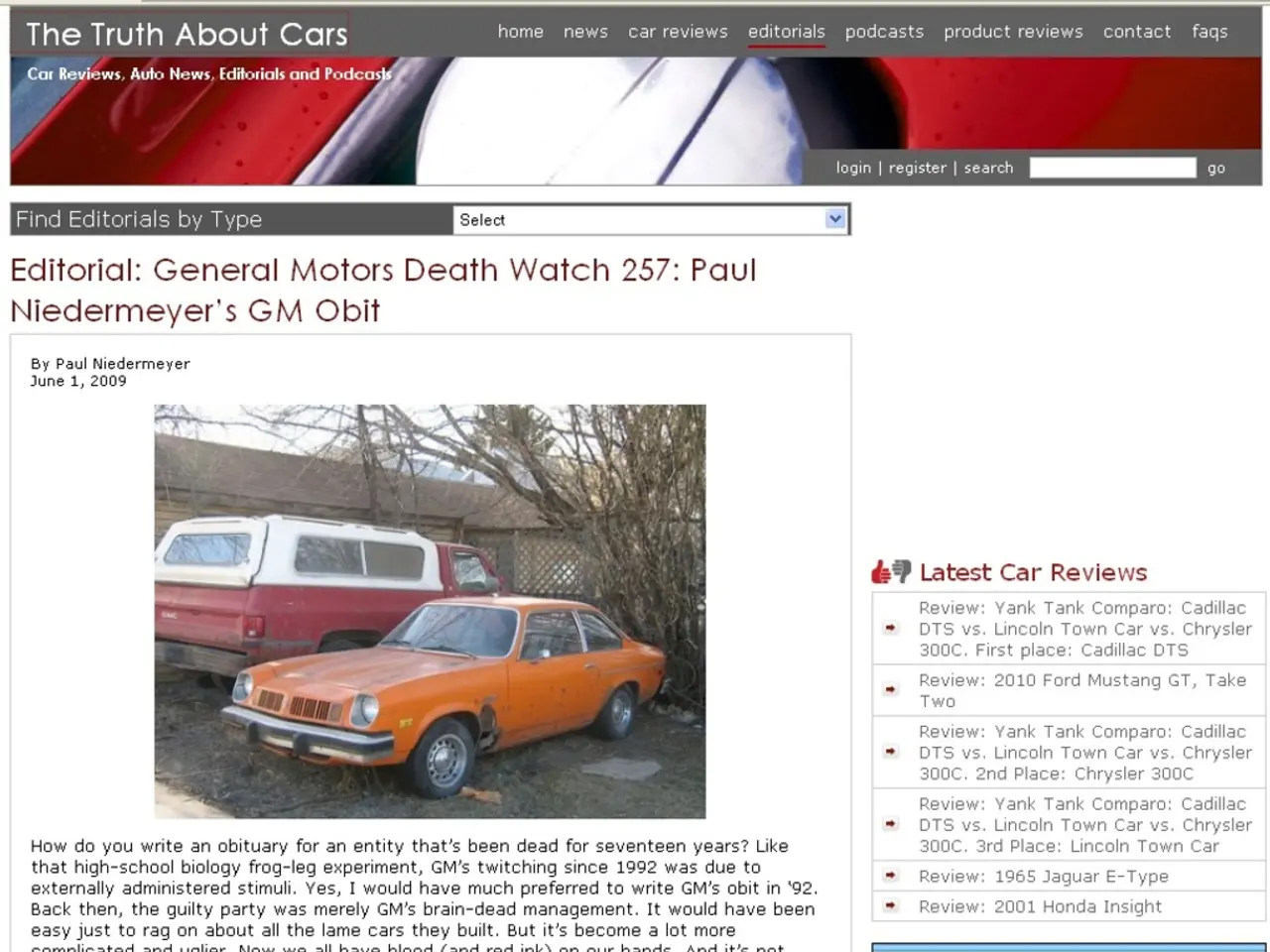"BMW Head Zipse Warns: A Ban on Fossil Fuels Imperils the Future of Europe's Automotive Sector"
In a bold move, BMW's CEO, Oliver Zipse, has publicly expressed his opposition to the European Union's forthcoming ban on the sale of new cars with internal combustion engines (ICE) by 2035. Zipse believes that this ban could jeopardize the competitiveness of the European automotive industry and significantly impact investments in new technologies.
Zipse has labelled the current EU regulation as a "disaster" and predicts that it will be revoked or fundamentally changed by 2028 at the latest due to its high costs and potential negative consequences. He advocates for a more comprehensive evaluation of vehicle emissions, including the entire lifecycle from raw material extraction to production and recycling, rather than just tailpipe emissions.
BMW is not advocating for a complete abandonment of ICE cars. Instead, the company is investing in a diverse portfolio of powertrains, including conventional combustion engines, plug-in hybrids, electric vehicles, and hydrogen vehicles. The company is also promoting synthetic fuels (e-fuels) as an option to reduce emissions from existing combustion engines and extend their viability in a more sustainable way.
Zipse is particularly concerned about the transition to 100% electric vehicles being forced prematurely, overlooking other viable technologies and the reality that combustion engine cars will remain in use for many years. He also defends BMW's continued investment in hydrogen, stating, "We are not foolish, we are thinking ahead."
Zipse is calling for international cooperation over protectionism and a comprehensive assessment of the entire vehicle lifecycle, from resource extraction to production and disposal. He believes that a full transition to electric vehicles is not realistic for decades and that batteries are heavily dependent on Asian supply chains.
The BMW CEO also addressed concerns about the price and maintenance of electric vehicles, stating that these factors play a crucial role in consumers' purchasing decisions. He believes that hydrogen is the long-term solution for Europe's energy independence and that CO2-neutral diesel alternatives should not be ignored.
BMW will present the BMW iX3 as part of the "Neue Klasse" platform at the IAA, and the company plans to present its future pure electric vehicle platform, "Neue Klasse," at the event. Despite the opposition to the EU's ban on ICE cars, BMW continues to produce vehicles with internal combustion engines at around 30 other locations worldwide.
The private electric vehicle market is developing slowly, partly due to a lack of affordable models. Zipse also highlighted the potential harm caused by trade conflicts, such as those with China or the US. The EU imposed tariffs on electric vehicles built in China last year, and the Chinese response could harm the German automotive industry. US President Donald Trump has already announced high tariffs on European products.
In summary, BMW's CEO sees the EU ban as too rigid and potentially damaging to the industry. He advocates for a multi-pronged approach to cleaner mobility, combining electrification with other technologies like hybrids, hydrogen, and synthetic fuels to meet carbon neutrality goals without abandoning combustion engines outright. Zipse also calls for technology-neutral politics to avoid risks from one-sided dependencies.
- BMW's CEO, Oliver Zipse, fears that the abrupt transition to 100% electric vehicles as per the EU's ban could overlook other viable technologies such as hydrogen, which he deems crucial for Europe's energy independence.
- Zipse believes that a more comprehensive evaluation of vehicle emissions should include the entire lifecycle, from resource extraction to production and disposal, rather than focusing solely on tailpipe emissions.
- BMW's diverse portfolio of powertrains includes not only electric vehicles but also conventional combustion engines, plug-in hybrids, and hydrogen vehicles, with the company also investigating synthetic fuels as a means to reduce emissions from existing combustion engines.




